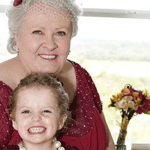Childminding is not about babysitting someone’s children.
Childminding is not about babysitting someone’s children. It is a professional service, offered by professional and trained childminders, with parents having high expectations that their children will be nurtured and cared for.
To be a childminder, you need to be trained, officially registered and inspected by a recognised standards board, such as Ofsted in England and CSSIW in Wales. It can be an incredibly rewarding job, with online childcare courses and a whole host of childminding courses on offer.
If you are new to child minding and are not sure where to start, then this guide is for you.
Step 1 – Find out for sure if this career choice is for you
Childminding is a growing profession, mainly because the demand from parents for quality childcare is on the increase. Being a professional childminder is about stimulating children in your care, as well as providing a whole host of activities as well as practical care, such as meals. Picking up older children from school can also be part of a childminding service.
You may find that there is more to professional childminding than what your first thought. There are many standards to meet as part of the inspection process and in the main, most childminders operate their business from home.
Before you enrol on courses, make sure that this is the right career choice for you. Some organisations and agencies operate ‘find out more’ events. Keep an eye open to see if there is one near you.
Step 2 – Registration
You need to be aged over 18 and to care for a child or children under the age of 8 for more than two hours a day, you will need to register with Ofsted or the regulatory body in Wales, Scotland and so on. The first step to becoming registered in the contact the Families Information Services, or equivalent, in the local authority where you live and where your will be conducting your business.
There will be several pre-registration meetings in your area which you will be advised to attend. At this meeting, you will be given an application pack and details of the Early Years Foundation Stage (EYFS).
The name of these guidelines may vary in Wales and Scotland, but these are the standards that trained childminders are expected to meet. They set out standards for learning, development, communication skills, physical and emotional development, numeracy & literacy, as well as care for children from birth to five years of age.
Step 3 – Finding a suitable course
Some courses meet the basic standards as set out in the Early Years Framework, but you need to be confident that the course you enrol on meets with these standards. If you are unsure, ask the provider.
You will also need to have completed and passed a first aid course specifically for children, sometimes known as a paediatric first aid before you can gain registration.
Many childminders worry that this initial training course they complete is not specialised. It is a general course that looks at how to be a childminder, meet the standards and criteria laid out in the framework for children, as well as how to run your business.
Step 4 – Criminal Records Check and other important issues
The process used by each local authority to complete registration will vary, so check with at the initial pre-registration meeting.
Applying for a check by the Disclosure and Barring Service (DBS) (formerly Criminal Records Bureau) will be needed, and you will also need to show that your home meets the standards for safety as laid out in the guidelines. This will be assessed by a home visit and an interview by Ofsted or an equivalent body.
Only when you have been successfully registered – there is a fee – will you be able to offer your professional childminding services. If you are using your car as part of your business, you will need Public Liability insurance, as well as business use on your insurance.
All this certification will be necessary to show prospective parents. You can continue to train in all kinds of childminding related courses, such as working with a child with additional needs. Some local authorities will allow you to practice once registration is complete and a course ongoing, whereas as some with withholding registration until you complete a basic course.
Stumbling blocks
There will be stumbling blocks are barriers that are personal to you, but there are also some parts of the process that some people find difficult to overcome:
• Cost – some courses can cost from £400 upwards, a large chunk of cash to find for most people. Many agencies offer a scheme by which you can pay on a monthly basis that makes courses far more available to some people. Some people are also entitled to financial help too with costs of courses and other fees.
• Paperwork – it can seem a little tedious at times, making sure you have all the right paperwork and in the correct order. What you must remember is that children are seen as vulnerable and ensuring their safety at all time is paramount. There can be costs involved in obtaining checks and insurances too.
• Your home may need adapting – all childminders need to operate in an environment that is safe for children and you. Inspectors are trained to identify potential hazards that may mean that you will need some make some changes, or invest in essential equipment such as child gates, child-proof locks and so on.
Working with children is incredibly rewarding. You will spend the day surrounded by boundless enthusiasm, and will be part of a child’s development and growth! Learn more about how to begin your career as a childminder by following our how to become a childminder guide.








